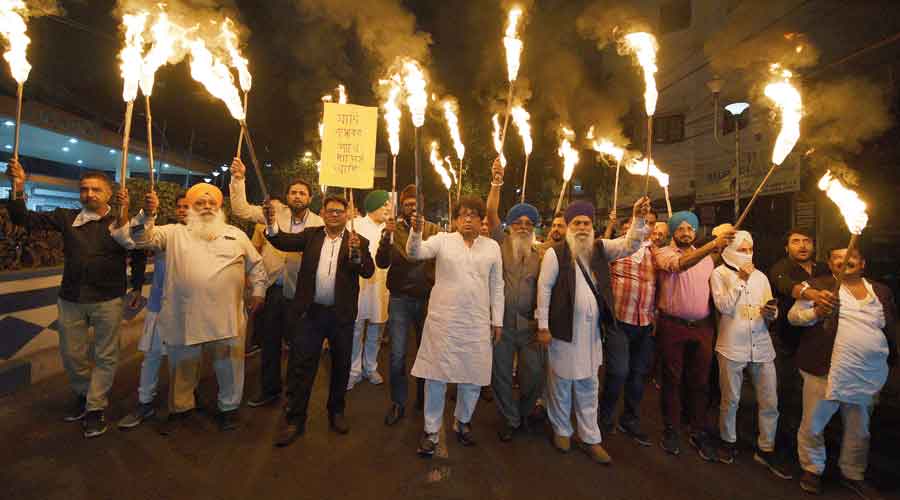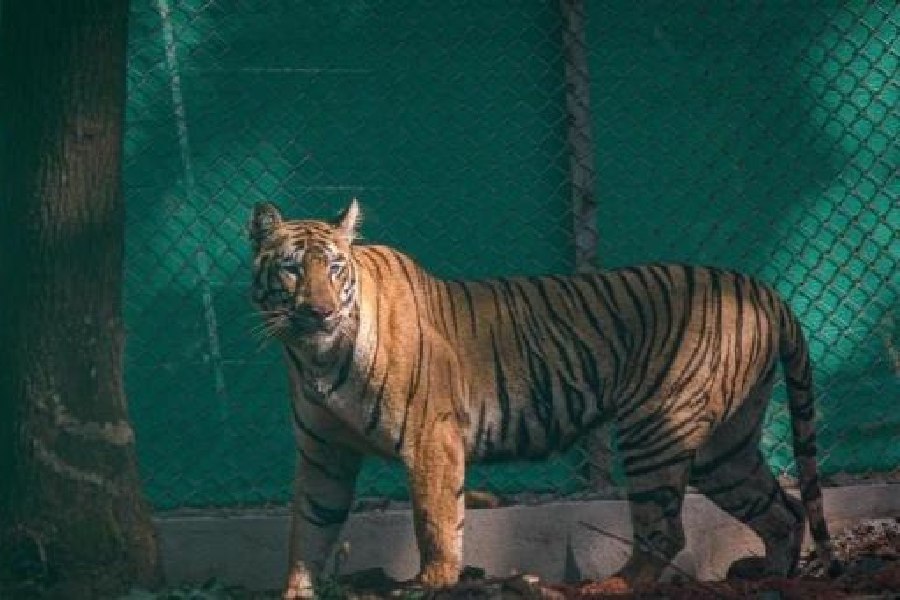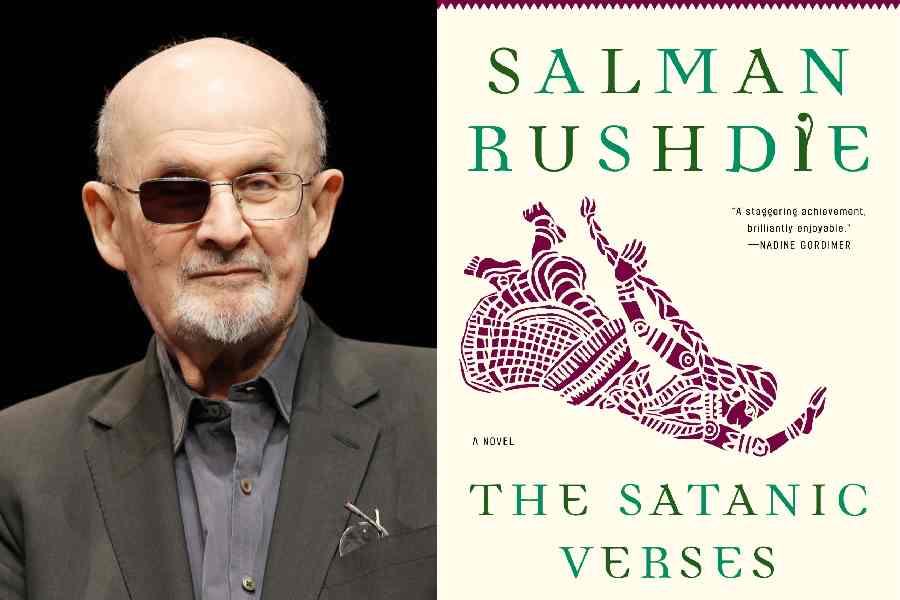Hundreds of people joined a torchlight rally in south Calcutta on Sunday evening in solidarity with the farmers who have been protesting at the gates of the national capital against the new farm laws.
The marchers came from different faiths and walks of life. Members of the Sikh community, many of them senior citizens, walked side by side with women in hijab.
Cries of “Kisan ekta zindabad (long live farmers’ unity)” and “Kisan tum aage badho, hum tumhare saath hai (Farmer, march ahead, we are with you)” rang the evening air.
The rally started from the intersection of Sarat Bose Road and Chakraberia Road and culminated at Netaji Bhavan on Elgin Road, where the marchers observed two minutes’ silence to respect people who have died during the farmers’ protest at the Singhu border of Delhi.
The farmers, who faced batons, tear gas and water canons to reach the Delhi border, have been braving a harsh winter and rains but have not budged from their mission — demanding a repeal of the three farm laws. Over 60 protesters have died so far.
One of the marchers in Calcutta on Sunday evening was Manpreet Singh Sonu, a 35-year-old man who owns a car rental business. In the second week of December, Sonu visited the Singhu border with a group of around 30 people. He spent close to a week at the protest site to lend moral support to the demonstrators.
“The spirit of unity and camaraderie at Singhu is remarkable. Help is pouring in from different quarters. If there are two cakes and five hungry people, they will divide the cake into five equal pieces,” said Sonu, who traces his roots to Punjab’s Gurdaspur.
Sonu had spoken to some shopkeepers at the Singhu border. Some of them were “scared to learn about the arrival of protesters, fearing their stores would be looted”.
“But the discipline and compassion of the protesters is something to learn. Now, the shopkeepers also admire their spirit,” said Sonu.
Manjit Singh Jetta, 60, was at the forefront of Sunday’s rally.
Jetta said a minimum support price was imperative for farmers. “The corporate houses will pay a good price for the produce in the first couple of years to wipe out the competition. Then, after establishing a monopoly, they will start calling the shots and slash the price at will,” said Jetta, whose parents had shifted from a village in Ludhiana to Calcutta when he was a boy.
Both Jetta and Sonu are part of Netaji Bhagat Singh United Forum, one of the two organisations that had organised Sunday’s rally.
Justice Unifying Social Transformation (JUST), a platform that comprises many women, was the other organiser. The platform came into being when the massive protests against the citizenship thrust were halted by the Covid-19 pandemic. Muslim women were at the forefront of the protests across Calcutta.
“We had to take the protests to the digital space. For that, many women joined hands. That is how the forum was born,” said college teacher Nausheen Baba Khan, one of the founders of JUST and a lecturer of political science at a city college.
“The farm laws are another extension of the autocratic strain of the government. The same strain that was visible when they came up with the citizenship matrix. If we don’t protest against the farm laws, we do not have the right to protest against the citizenship thrust,” said Khan.











